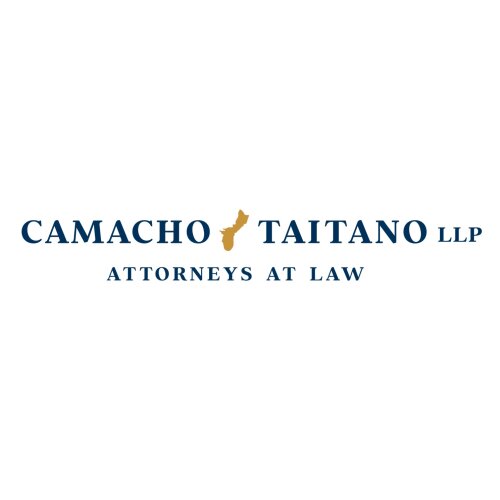Best Agriculture Lawyers in Hagåtña
Share your needs with us, get contacted by law firms.
Free. Takes 2 min.
List of the best lawyers in Hagåtña, Guam
About Agriculture Law in Hagåtña, Guam
Agriculture in Hagåtña, Guam, is a vital component of the region's economy and community, reflecting a mix of traditional practices and modern farming techniques. Being an island territory of the United States, Guam's agriculture is influenced by both local customs and federal regulations. The region's tropical climate allows for the cultivation of a variety of crops such as bananas, taro, and sweet potatoes, and livestock farming remains an important sector. This agricultural diversity requires an understanding of unique legal and environmental landscapes, making legal expertise in agriculture crucial for producers and stakeholders.
Why You May Need a Lawyer
There are several common situations where individuals or businesses in the agricultural sector in Hagåtña may require legal assistance. These include:
- Disputes over landownership or land use, which are prevalent due to the limited available land on the island.
- Compliance with both local and federal agricultural regulations, including environmental and safety standards.
- Contract negotiations and disputes associated with the sale and distribution of agricultural products.
- Assistance with obtaining permits and licenses required for agricultural activities.
- Resolving labor and employment issues related to farmworkers and other personnel involved in agricultural operations.
Local Laws Overview
The legal landscape for agriculture in Hagåtña incorporates both local Guam laws and federal U.S. laws. Key aspects include:
- Land Use Regulations: Regulations concerning the zoning and permissible uses of land are critical given the limited land resources and need for sustainability.
- Environmental Protection: Laws aim to conserve Guam's natural resources, protect native species, and manage water resources wisely.
- Import and Export Controls: As an island, there's a need to adhere to strict importation laws to prevent the spread of invasive species and diseases.
- Federal Agricultural Policies: These include subsidies, support programs, and disaster relief initiatives applicable to U.S. territories.
Frequently Asked Questions
How can I legally use my land for agricultural purposes?
Consult the zoning laws and land use regulations with the Guam Land Use Commission to ensure your land is designated for agricultural use. You may also need specific permits.
What are the main environmental rules I need to be aware of?
Environmental regulations in Guam include restrictions on pesticide use, water management protocols, and conservation efforts. Compliance with the Guam Environmental Protection Agency is crucial.
Do I need special permits to sell my agricultural products?
Yes, permits from local agencies may be required for selling certain agricultural products, particularly if they involve processing or exporting.
Are there federal programs available for farmers in Guam?
Yes, farmers in Guam can access several U.S. Department of Agriculture programs, including grants, loans, and support initiatives.
What are the labor laws affecting farmworkers?
Farm labor regulations include guidelines on working conditions, safety standards, and wage requirements. It's important to adhere to both local and U.S. labor laws.
Can I get assistance for damage caused by natural disasters?
A variety of disaster relief programs are available through federal agencies like FEMA and local agricultural support programs. Consult with these agencies for aid.
How do I handle a contract dispute with a supplier or buyer?
It's advisable to seek legal counsel to mediate or litigate disputes effectively and ensure that all contractual terms are enforced.
What steps should I take to ensure food safety compliance?
Ensure all operations align with the food safety standards set by agencies like the Guam Department of Agriculture and the FDA.
How are water rights managed for agricultural use?
Water rights and usage for agriculture are governed by environmental laws, requiring permits for significant usage or diversion from natural sources.
What resources are available for starting an agricultural business?
Local government programs, the Guam Cooperative Extension Service, and industry associations can provide resources and guidance for new agricultural ventures.
Additional Resources
For further assistance, consider contacting the following resources:
- Guam Department of Agriculture: Offers extensive resources and guidance on agricultural practices and compliance.
- Guam Environmental Protection Agency: For environmental regulations and sustainability practices.
- Guam Cooperative Extension Service: Provides educational resources and support for farmers.
- U.S. Department of Agriculture: Offers federal programs and support for agricultural management.
Next Steps
If you need legal assistance in agriculture, consider taking the following steps:
- Consult with a lawyer specializing in agricultural law. They can provide guidance specific to your situation and ensure compliance with relevant laws.
- Gather all relevant documentation related to your agricultural operations, including land deeds, contracts, and permits.
- Contact local agricultural organizations for referrals to legal experts with experience in handling agriculture-related issues.
- Stay informed about new regulations and changes in the legal landscape by attending seminars and workshops conducted by agricultural bodies in Guam.
Lawzana helps you find the best lawyers and law firms in Hagåtña through a curated and pre-screened list of qualified legal professionals. Our platform offers rankings and detailed profiles of attorneys and law firms, allowing you to compare based on practice areas, including Agriculture, experience, and client feedback.
Each profile includes a description of the firm's areas of practice, client reviews, team members and partners, year of establishment, spoken languages, office locations, contact information, social media presence, and any published articles or resources. Most firms on our platform speak English and are experienced in both local and international legal matters.
Get a quote from top-rated law firms in Hagåtña, Guam — quickly, securely, and without unnecessary hassle.
Disclaimer:
The information provided on this page is for general informational purposes only and does not constitute legal advice. While we strive to ensure the accuracy and relevance of the content, legal information may change over time, and interpretations of the law can vary. You should always consult with a qualified legal professional for advice specific to your situation.
We disclaim all liability for actions taken or not taken based on the content of this page. If you believe any information is incorrect or outdated, please contact us, and we will review and update it where appropriate.









